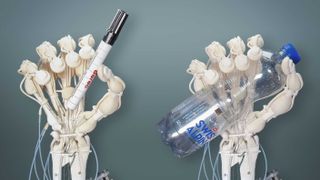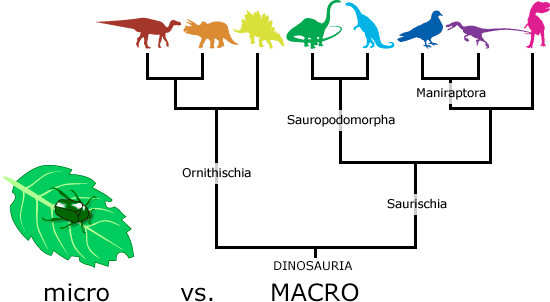Vision-controlled jetting for composite systems and robots
Thomas J. K. Buchner, Simon Rogler, Stefan Weirich, Yannick Armati, Barnabas Gavin Cangan, Javier Ramos, Scott T. Twiddy, Davide M. Marini, Aaron Weber, Desai Chen, Greg Ellson, Joshua Jacob, Walter Zengerle, Dmitriy Katalichenko, Chetan Keny, Wojciech Matusik & Robert K. Katzschmann
Nature volume 623, pages 522–530 (2023)

An image montage of the soft robotic hand holding a marker pen and a water bottle.(Image credit: ETH Zurich/Thomas Buchner)
Abstract
Recreating complex structures and functions of natural organisms in a synthetic form is a long-standing goal for humanity1. The aim is to create actuated systems with high spatial resolutions and complex material arrangements that range from elastic to rigid. Traditional manufacturing processes struggle to fabricate such complex systems2. It remains an open challenge to fabricate functional systems automatically and quickly with a wide range of elastic properties, resolutions, and integrated actuation and sensing channels2,3. We propose an inkjet deposition process called vision-controlled jetting that can create complex systems and robots. Hereby, a scanning system captures the three-dimensional print geometry and enables a digital feedback loop, which eliminates the need for mechanical planarizers. This contactless process allows us to use continuously curing chemistries and, therefore, print a broader range of material families and elastic moduli. The advances in material properties are characterized by standardized tests comparing our printed materials to the state-of-the-art. We directly fabricated a wide range of complex high-resolution composite systems and robots: tendon-driven hands, pneumatically actuated walking manipulators, pumps that mimic a heart and metamaterial structures. Our approach provides an automated, scalable, high-throughput process to manufacture high-resolution, functional multimaterial systems.
FREE PDF GRATIS: Nature







